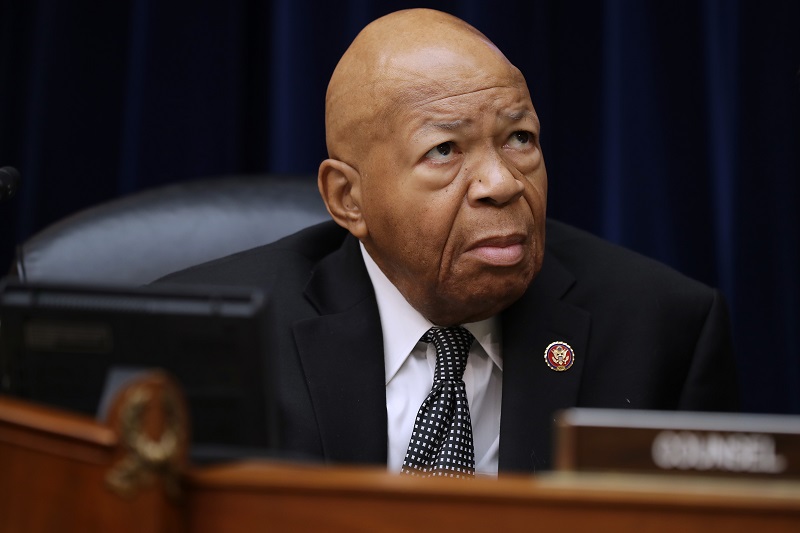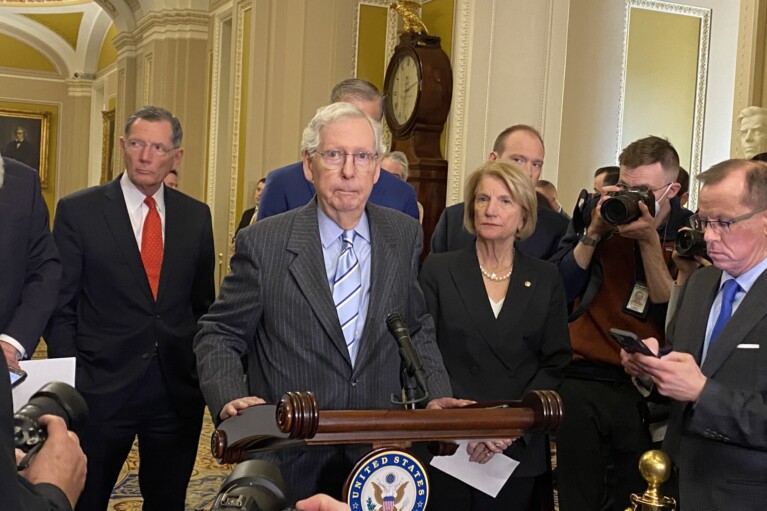Rep. Elijah Cummings, 1951-2019

U.S. Rep. Elijah E. Cummings (D-Md.), the son of sharecroppers who rose to the highest heights of national politics but never lost touch with the inner-city Baltimore neighborhood where he lived and that he loved, died early Thursday morning after a series of illnesses. He was 68.
Cummings’ death, at a hospice operated by Johns Hopkins Medical Center, was announced at 5:46 a.m. by the Maryland Democratic Party, which is led by his wife, Maya Rockeymoore Cummings.
Cummings, the chairman of the House Oversight and Reform Committee, was a leading figure in the House investigation of President Trump and a towering presence in the Baltimore and Maryland political and civic scene for nearly four decades, mentoring a countless number of politicians and community leaders through the years.
He had been absent from Capitol Hill for about a month as he recovered from an unspecified medical procedure. But he had been beset with a variety of physical ailments over the past few years, and often used a walker or a wheelchair to get around Capitol Hill and to events in Maryland. His last roll call vote was on Sept. 11.
“Congressman Cummings was an honorable man who proudly served his district and the nation with dignity, integrity, compassion and humility,” his wife said in a statement released by the state party early Thursday morning. “He worked until his last breath because he believed our democracy was the highest and best expression of our collective humanity and that our nation’s diversity was our promise, not our problem. It’s been an honor to walk by his side on this incredible journey. I loved him deeply and will miss him dearly.”
Cummings was the top Democrat on the Oversight and Reform Committee for several years, rising to chairman at the start of this year, after Democrats regained control of the House. His panel is one of three committees conducting the impeachment inquiry of Trump. Even while he was absent from Capitol Hill for the past month, he was participating in discussions about the inquiry and issuing subpoenas to key witnesses.
In July, Trump took to Twitter to lash out at Cummings – and Baltimore – calling the city a “disgusting rat and rodent infested mess.”
“Why is so much money sent to the Elijah Cummings district when it is considered the worst run and most dangerous anywhere in the United States,” Trump wrote. “No human being would want to live there. Where is all this money going? How much is stolen? Investigate this corrupt mess immediately!”
The Trump tirade unleased an avalanche of support for Cummings and the city from political leaders, editorial writers and average citizens.
But Trump was conciliatory in a public statement issued Thursday morning.
“My warmest condolences to the family and many friends of Congressman Elijah Cummings,” he wrote. “I got to see first hand the strength, passion and wisdom of this highly respected political leader. His work and voice on so many fronts will be very hard, if not impossible, to replace!”
Several Republican colleagues of Cummings’ on Capitol Hill issued moving statements saying how much they liked and admired him, despite their personal differences.
“I am heartbroken. Truly heartbroken,” U.S. Rep. Mark Meadows (R-N.C.) said, according to CNN. “I have no other words to express the loss.”
Cummings was elected to the House in a 1996 special election, winning a multicandidate Democratic primary to replace former Rep. Kweisi Mfume (D), who resigned from Congress to become president of the NAACP. Cummings had been reelected easily a dozen times since. He was pressured to run for the U.S. Senate when Sen. Paul G. Sarbanes (D) retired in 2006 and when Sen. Barbara A. Mikulski (D) stepped down a decade later, but he chose to remain in the House, where he had also served as chairman of the Congressional Black Caucus.
“The death of Chairman Cummings leaves an irreplaceable void in our hearts, in our Maryland and in our Congress,” U.S. Sen. Benjamin L. Cardin (D-Md.) said in a statement. “Quite possibly no elected official mattered so much to his constituents. Chairman Cummings guaranteed a voice to so many who would otherwise not have one, and stood as a symbol for the heights one could reach if they paid no mind to obstacles, naysayers and hate.”
Cardin served with Cummings in the U.S. House and the Maryland House of Delegates.
Cummings’ political career began in 1982, when he was elected to the House of Delegates. He rose to become House speaker pro tem in 1995 – the first African-American to hold that position.
In the mid-1990’s, his passionate defense on the House floor of a proposed needle exchange program favored by Baltimore City leaders saved the legislation from near certain doom.
“When that man spoke, he penetrated the soul,” Gerald Stansbury, the president of the Maryland State Conference of the NAACP, said Thursday morning on WOLB’s “Larry Young Show.”
But beyond the official duties, Cummings was a visible and inspiring figure in inner-city Baltimore, living in the same house on Madison Avenue for three decades. He would return home from Capitol Hill most nights, despite the press of congressional business.
“He represents in many ways the best of us, the best of this city, and the best of this nation,” Mfume said on WBAL Radio’s “The C4 Show” on Thursday.
When riots erupted in Baltimore in 2015, following the death of Freddie Gray in police custody, Cummings walked the streets relentlessly in an attempt to keep the peace.
“Elijah was front and center, helping to calm the unrest in 2015, not because he wanted press attention but because he cared – deeply cared – about the communities in and around Baltimore City and the plight of young African-Americans in poverty,” state House Speaker Adrienne A. Jones (D-Baltimore County) said in a statement.
Humble roots
Cummings was one of seven children, the son of South Carolina sharecroppers who moved to Baltimore seeking a better life and later became Pentecostal ministers. Cummings credited his parents for instilling in him a love of education and public service.
Cummings attended Howard University, where he served as student government president and graduated Phi Beta Kappa. He earned his law degree from the University of Maryland.
Before becoming active in politics, Cummings was a practicing attorney and visible presence in Baltimore courthouses. He spent time as president of the Monumental City Bar Association, a professional organization for black lawyers.
Cummings had multiple health problems in recent years. He missed several months in 2017 after getting an infection following an aortic valve replacement. Cummings was hospitalized again in 2018 with a knee infection.
But no matter how weak he looked physically, Cummings remained a vital, emotional political force who stayed on top of his congressional work until the last moments of his life, friends and colleagues said.
“Maryland has lost a treasure,” Jones said. “We all say none of us are irreplaceable in elected office. But there will never be another Elijah Cummings.”
With Cummings’ death there is a vacancy in the 7th congressional district, which takes in major territory in Baltimore City and parts of Baltimore and Howard counties. Gov. Lawrence J. Hogan Jr. (R) – who ordered Maryland flags flown at half staff in Cummings’ honor – will schedule a special election to replace him.
While details on the special election haven’t been set, it’s a near-certainty that the winner of the Democratic primary will wind up filling Cummings’ congressional seat.
“We are deeply saddened by the passing of Congressman Elijah Cummings, who was a fierce advocate for civil rights and for Maryland for more than three decades,” Hogan said in a statement. “Congressman Cummings leaves behind an incredible legacy of fighting for Baltimore City and working to improve people’s lives. He was a passionate and dedicated public servant whose countless contributions made our state and our country better.”
State House Majority Whip Talmadge Branch (D-Baltimore City) said in a radio interview Thursday that he cannot imagine the city and the political world without Cummings.
“This is a vacuum. This is a whirlwind,” he said.
Maryland Matters will provide updated coverage throughout the day.




 Creative Commons Attribution
Creative Commons Attribution